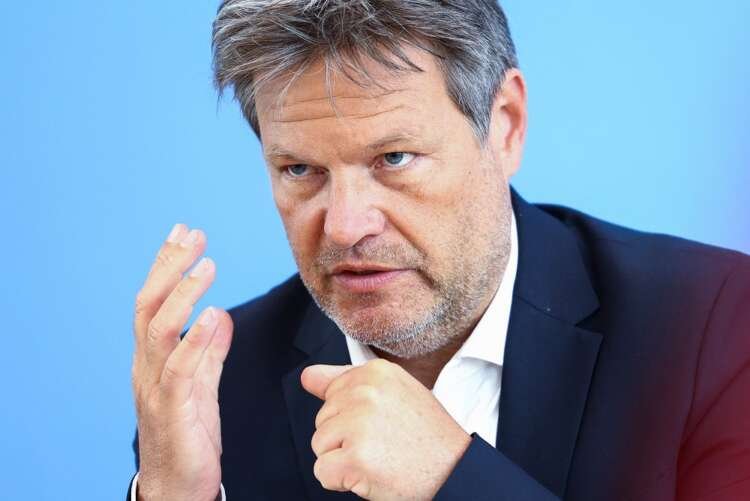Germany would weather Russian oil ban despite shortages – minister


By Joseph Nasr and Christian Kraemer
BERLIN (Reuters) -Germany would be able to weather an EU embargo on Russian oil imports by the end of this year even though a stoppage could result in shortages, Economy Minister Robert Habeck said on Monday, appearing to throw his weight behind a ban.
Two European Union diplomats said at the weekend that the bloc is leaning toward a ban by the end of the year as part of a sixth package of sanctions against Russia over its invasion of Ukraine. EU energy ministers will discuss the proposed oil ban in Brussels later on Monday.
“We have managed to reach a situation where Germany is able to bear an oil embargo,” Habeck, of the ecologist Greens, told a news conference. “This means it won’t be without consequences.”
Finance Minister Christian Lindner went even further, telling a German broadcaster that the German economy would even be able to stomach an immediate ban.
“With coal and oil, it is possible to forgo Russian imports now,” Lindner of the Free Democrats (FDP) told WELT. “It can’t be ruled out that fuel prices could rise.”
Chancellor Olaf Scholz’s government is under pressure to reduce Germany’s dependence on Russian fossil fuels and he has been accused of lacking leadership after his initial resistance to supplying Ukraine with heavy weapons.
Germany last month cut the share of Russian oil to 25% of total imports from 35% before the invasion.
Habeck said the main challenge for Germany was to find alternative oil deliveries to a refinery in Schwedt operated by Russian state company Rosneft which supplies east German regions as well as the Berlin metropolitan area.
Those areas could face supply shortages in the event of an EU embargo if Germany can’t secure alternative oil imports by the end of the year, Habeck said.
“We still have no solution for the refinery in Schwedt,” said Habeck. “We can’t guarantee that supplies will be continuous. There will for sure be price hikes and there will be some outages. But that doesn’t mean we will slide into an oil crisis.”
An advisor to Scholz told the Financial Times in remarks published on Sunday that Germany backed the planned EU embargo on Russia oil but wanted a few more months to secure alternatives.
Joerg Kukies told the newspaper that the goal was to ensure Schwedt is supplied with non-Russian oil brought by tankers to Rostock on the Baltic Sea.
To allow this, the port of Rostock would have to be deepened and work done on the pipeline linking it to Schwedt, he said.
(Writing by Joseph Nasr; Editing by Frank Jack Daniel and Louise Heavens)
Fossil fuels are natural resources such as coal, oil, and natural gas, formed from the remains of ancient plants and animals, used primarily for energy production.
Economic dependence refers to a situation where a country or region relies heavily on a specific resource or trade partner for its economic stability and growth.
Price inflation is the rate at which the general level of prices for goods and services rises, eroding purchasing power and often measured by the Consumer Price Index (CPI).
Explore more articles in the Top Stories category











